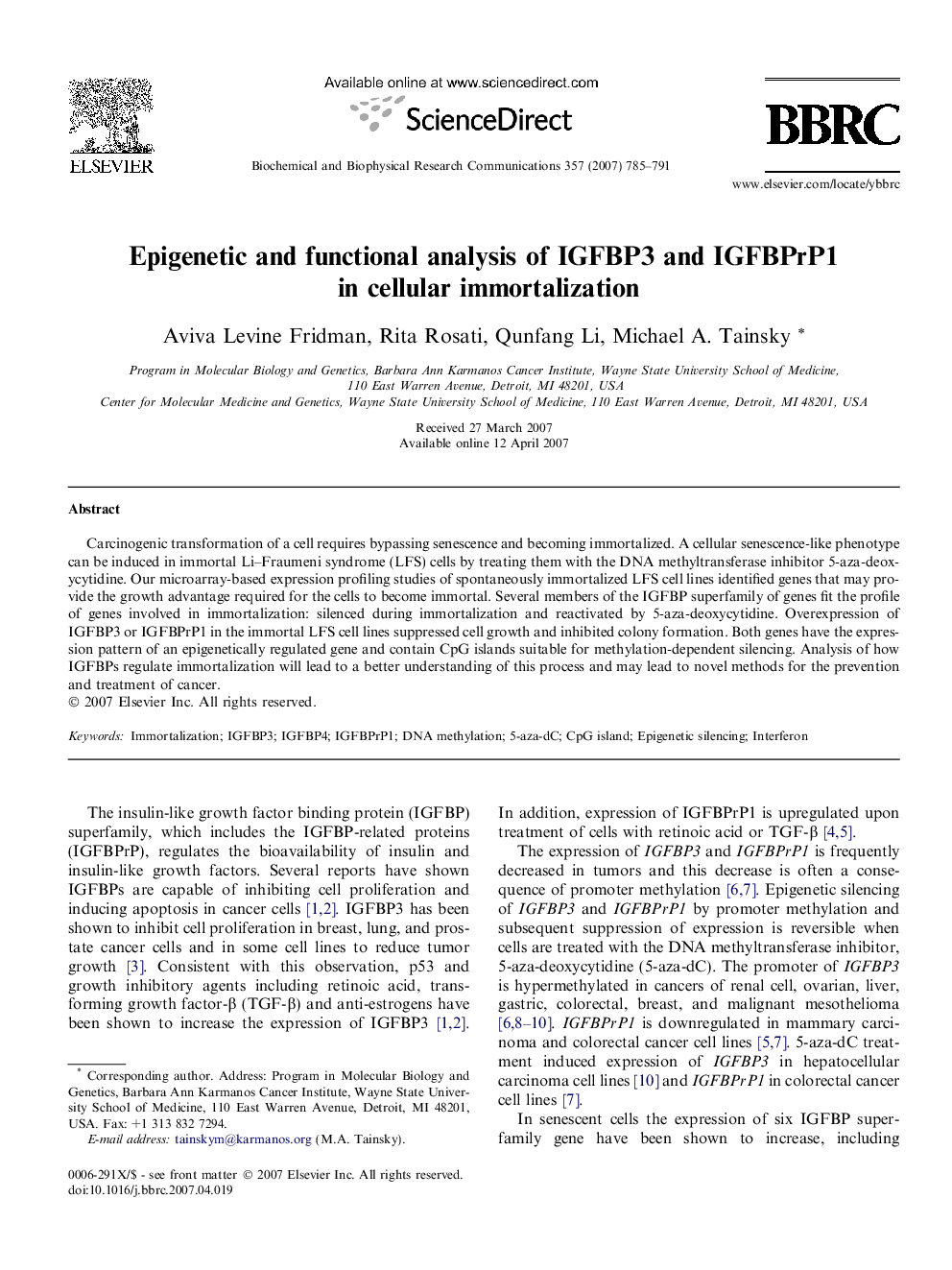| Article ID | Journal | Published Year | Pages | File Type |
|---|---|---|---|---|
| 1938472 | Biochemical and Biophysical Research Communications | 2007 | 7 Pages |
Carcinogenic transformation of a cell requires bypassing senescence and becoming immortalized. A cellular senescence-like phenotype can be induced in immortal Li–Fraumeni syndrome (LFS) cells by treating them with the DNA methyltransferase inhibitor 5-aza-deoxycytidine. Our microarray-based expression profiling studies of spontaneously immortalized LFS cell lines identified genes that may provide the growth advantage required for the cells to become immortal. Several members of the IGFBP superfamily of genes fit the profile of genes involved in immortalization: silenced during immortalization and reactivated by 5-aza-deoxycytidine. Overexpression of IGFBP3 or IGFBPrP1 in the immortal LFS cell lines suppressed cell growth and inhibited colony formation. Both genes have the expression pattern of an epigenetically regulated gene and contain CpG islands suitable for methylation-dependent silencing. Analysis of how IGFBPs regulate immortalization will lead to a better understanding of this process and may lead to novel methods for the prevention and treatment of cancer.
